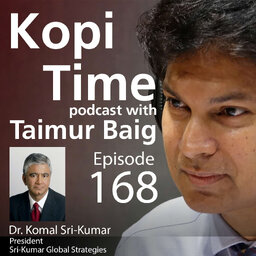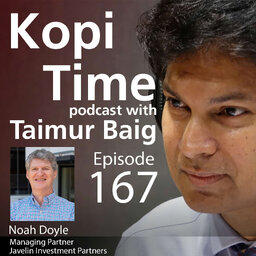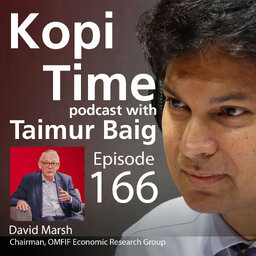Kopi Time E122 - Development Multilateralism with Atlantic Council’s Martin Mühleisen
Martin Mühleisen, nonresident senior fellow at the Atlantic Council, returns to Kopi Time to talk about the state of multilateralism. He sees the recent IMF meetings marked by modest progress in securing greater funding for development and climate change, but much more remains to be done to give developing nations their requisite voice in global bodies. On issues such as supply chain resiliency and domestic market protection, nations around the world are undertaking a variety of interventions, which may be understandable given the pandemic shock and geopolitics. Yet, they create risks for inflation, and add layers of inefficiency and distortion. Martin weighs in on US fiscal, Japan’s monetary policy, and Europe’s difficulties with the war in Ukraine and China-US friction. We round up the discussion with how to keep multilateral institutions like the IMF maintain their relevance in this multipolar world.
 DBS Economics & Strategy
DBS Economics & Strategy


